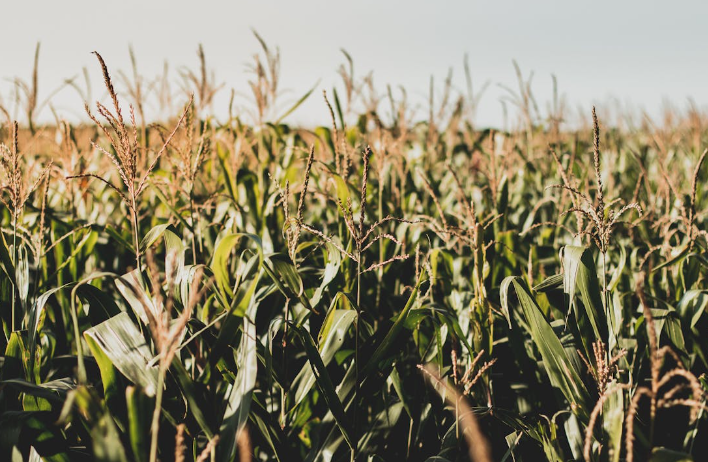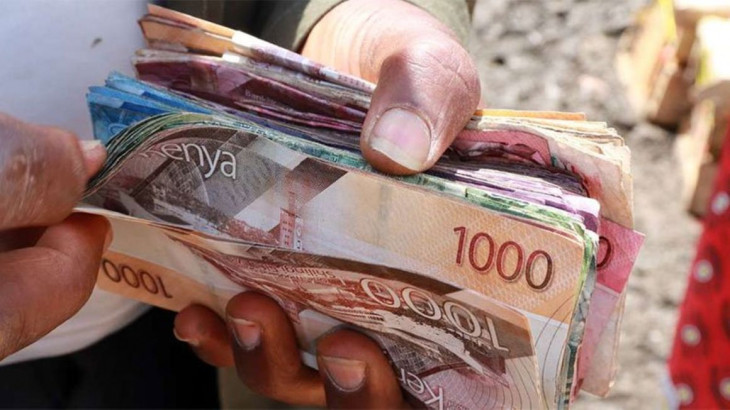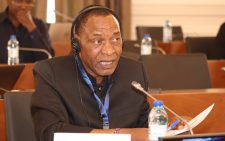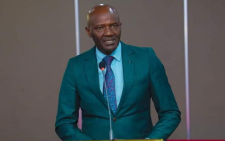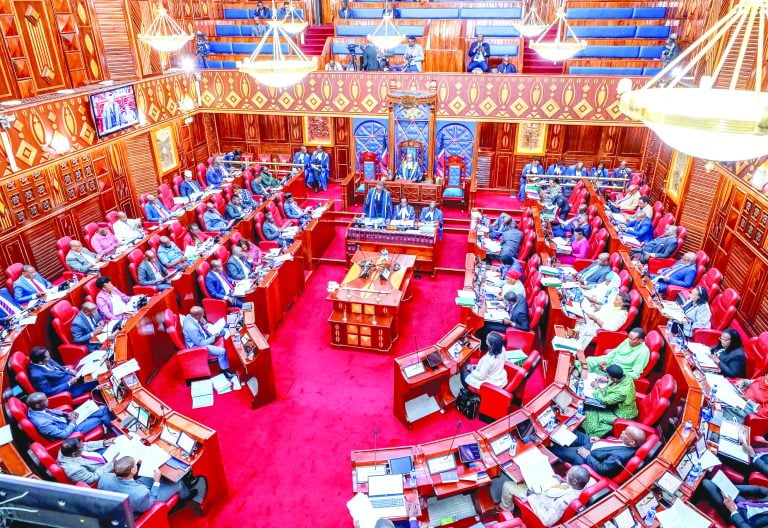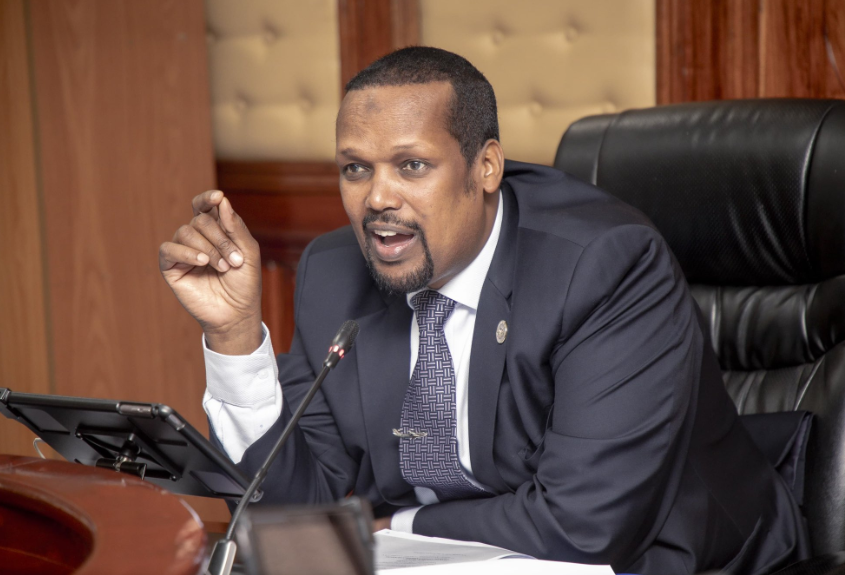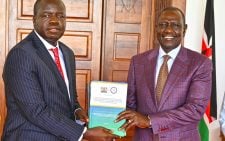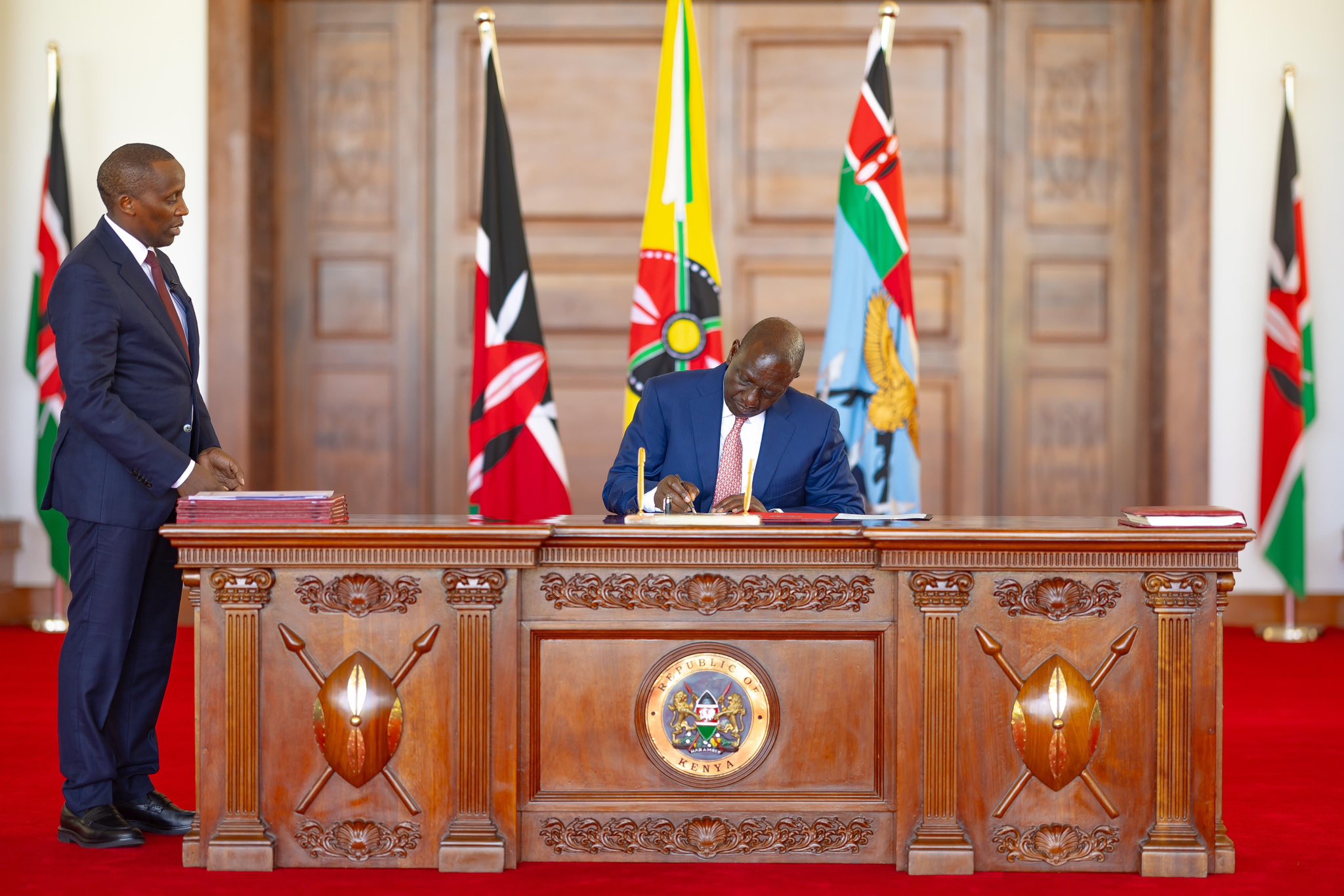Court now suspends Ruto’s directive to lift ban on logging
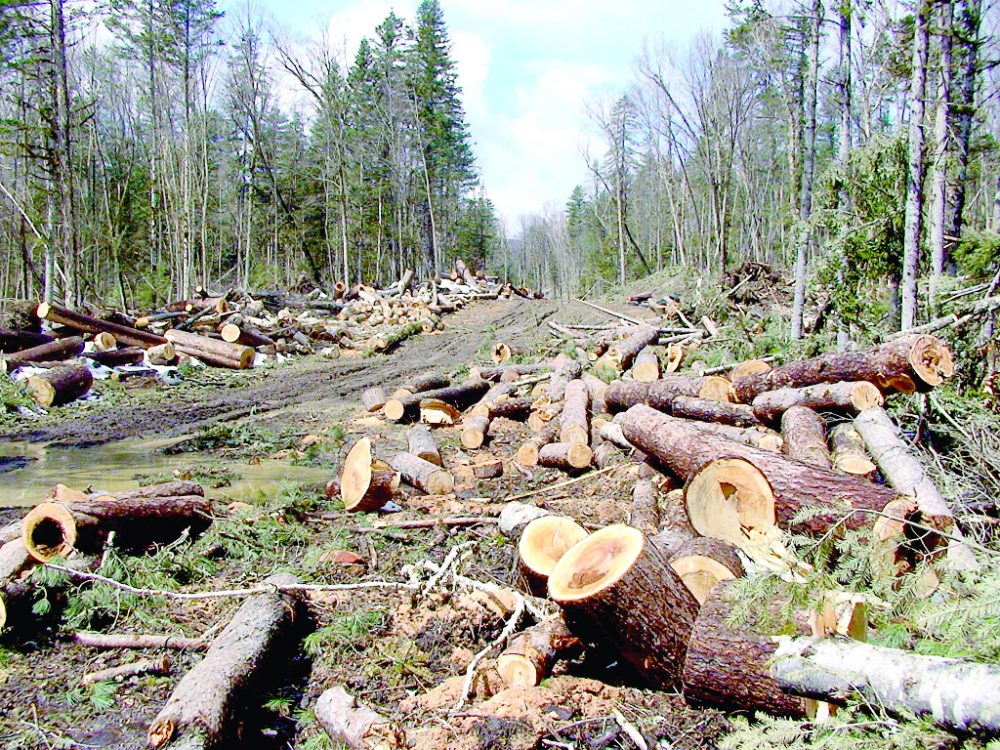
The Environment and Lands Court has suspended President William Ruto’s directive to allow logging in forests.
In a brief ruling, Justice Oscar Angote directed that logging should stop immediately pending inter-parties hearing of a case filed by the Law Society of Kenya.
“Pending the hearing and the determination of the application and the suit herein, conservatory orders are issued restraining the respondents either by themselves or through, their agents, servants, employees, proxies or any other person from licensing, permitting, allowing or in any other way exploiting forest resources more particularly, staying the implementation of the policy directive by the Head of State William Ruto, lifting of the ban on logging implemented throughout Kenya in 2018,” the judge ordered.
Angote also issued orders suspending any plans by the government to re-introduce the shamba system in forests.
Further, the court barred the government from granting licences or permits to fell and log trees of any nature in any forest in the country.
While issuing interim orders suspending Ruto’s directive that lifted a countrywide ban on logging, Justice Angote found that the lawsuit by LSK was merited and ordered it to be heard on a priority basis.
“Upon reading the application in the absence of parties, it is hereby ordered that the application by LSK is certified as urgent and prayer numbers 2, 3 and 4 are granted until August 14, 2023,” he ruled.
Improve livelihoods
The judge has also directed the Attorney General Justin Muturi, Environment Cabinet Secretary Soipan Tuya, Climate Change and Forestry Department, Kenya Forest Service and the National Environment Management Authority, who have been sued by LSK, to file their responses to the case within five days.
LSK has challenged Ruto’s decision to lift the logging ban declared in 2018.
The President had said the decision was intended to improve the livelihoods of people who live near forests.
When it announced the ban in 2018, the government said it was intended to protect forests from illegal logging and to help the country meet its climate change goals.
But Ruto noted that the ban had led to job losses and economic hardships in some parts of the country, and that lifting it would help to create jobs and boost the economy.
Inventory
Ruto’s decision was met with mixed reactions with environmentalists raising concerns that it would lead to increased deforestation.
But the government argued that it would put in place strict measures to ensure that only mature trees are harvested and that new trees planted to replace those that are cut down.
The government stated that the lifting of the ban was informed by an inventory of forest plantations.
The State said the inventory, which was undertaken by a multi-agency taskforce, showed that there were 26,000 hectares of mature and over-mature forest plantations. “Only mature trees will be harvested, and new trees will be planted to replace those that are cut down. Forests can be managed sustainably to provide both economic benefits and environmental protection,” Ruto stated.
In its lawsuit, LSK argues that the President’s directives were illegal and did not follow due process.
“The directives issued have neither provided the scientific reasons, research, policy directives, specific environmental assessment impact, nor the public participation done in the areas that are likely to be affected by the removal of the ban on logging activities by the State,” LSK says.
“The destruction of our national forests through unchecked logging, degazettement of areas under forests, and re-introduction of Shamba System has a devastating impact on Kenya’s water towers which are increasingly drying up,” LSK told the judge.
It argued that the decision to lift the ban is in complete disregard of Article 69 of the Constitution and is a misguided and detrimental move that puts short-term economic gain of a small minority ahead of the long-term well- being of the nation’s environment and future generations.


